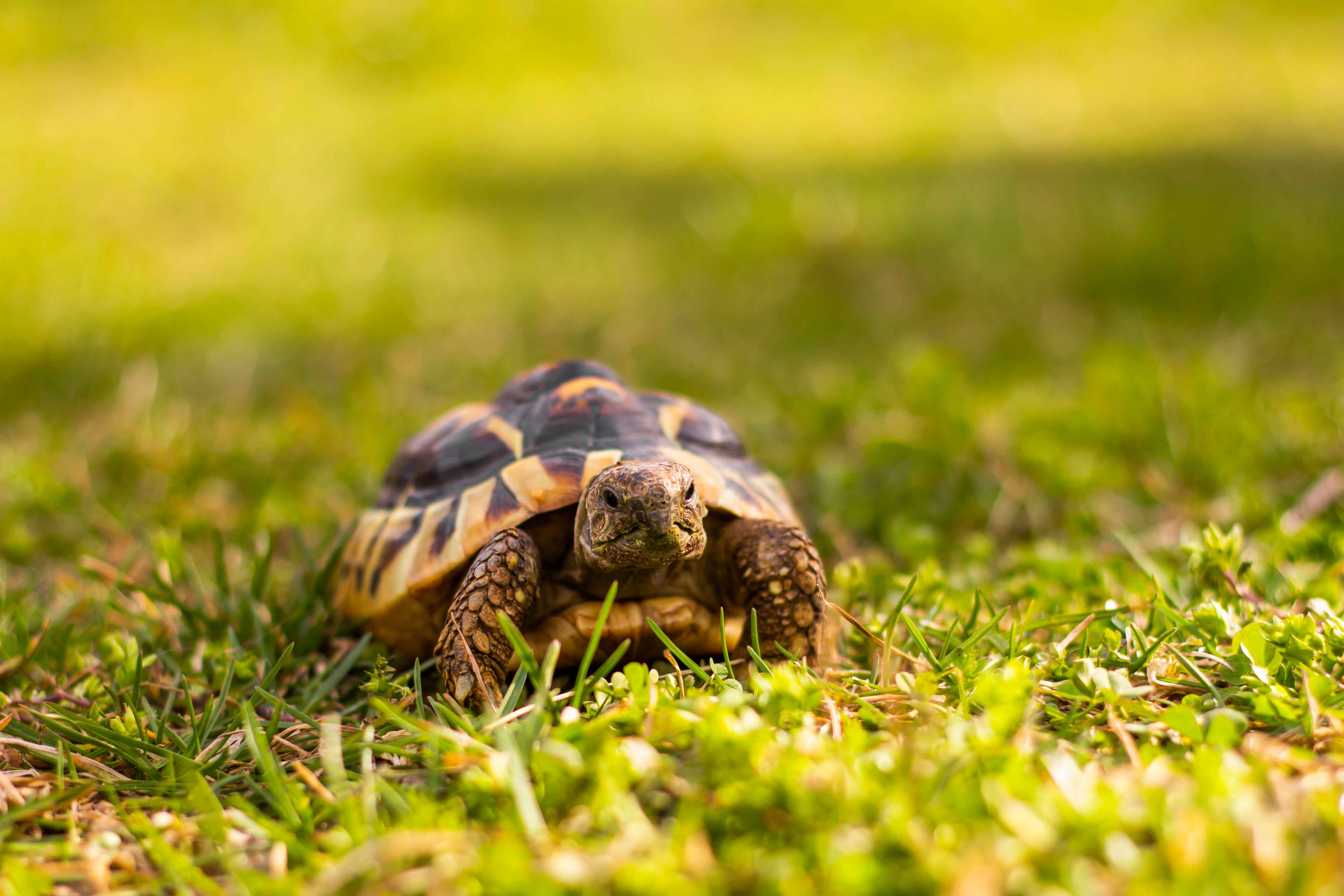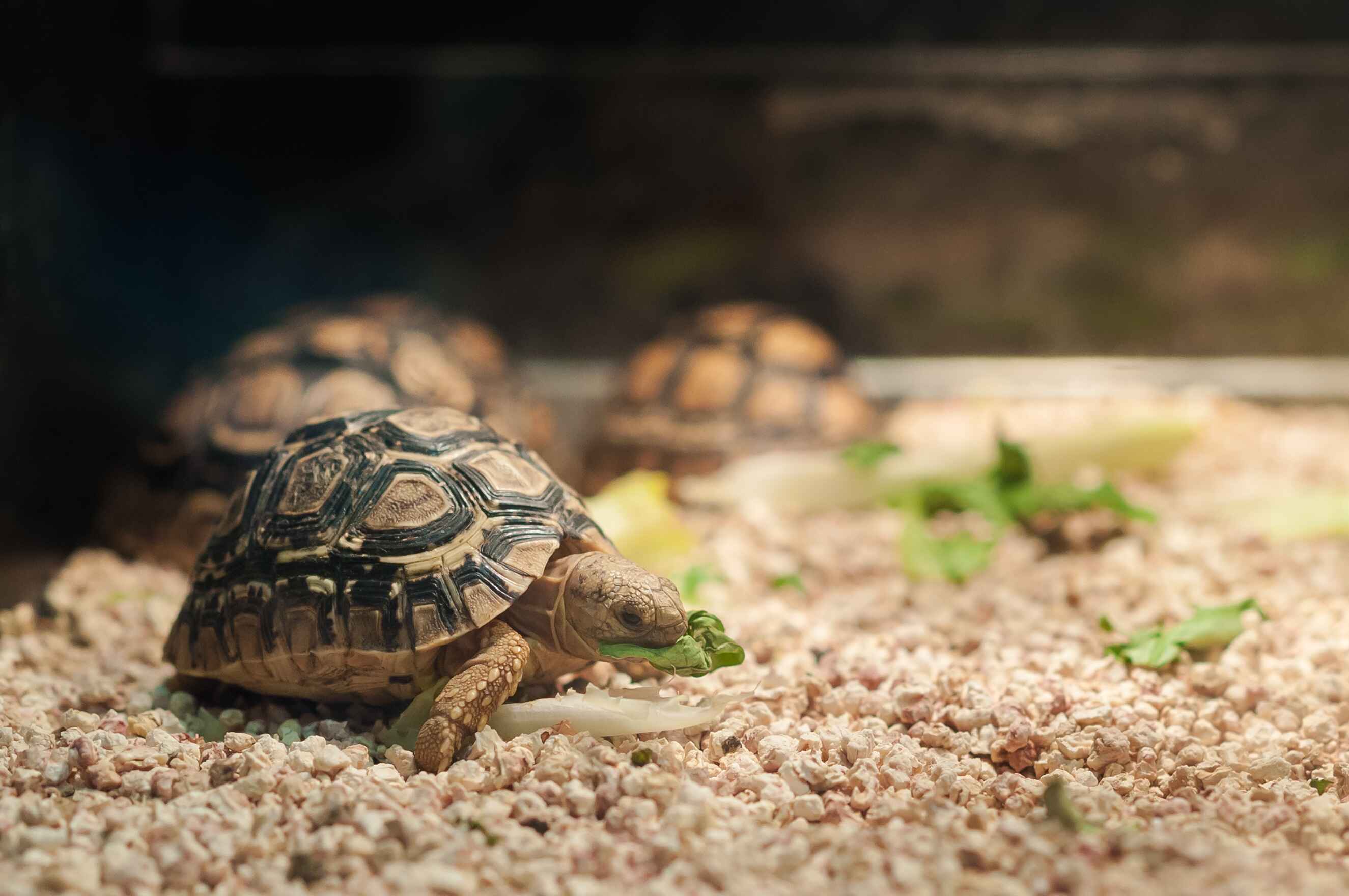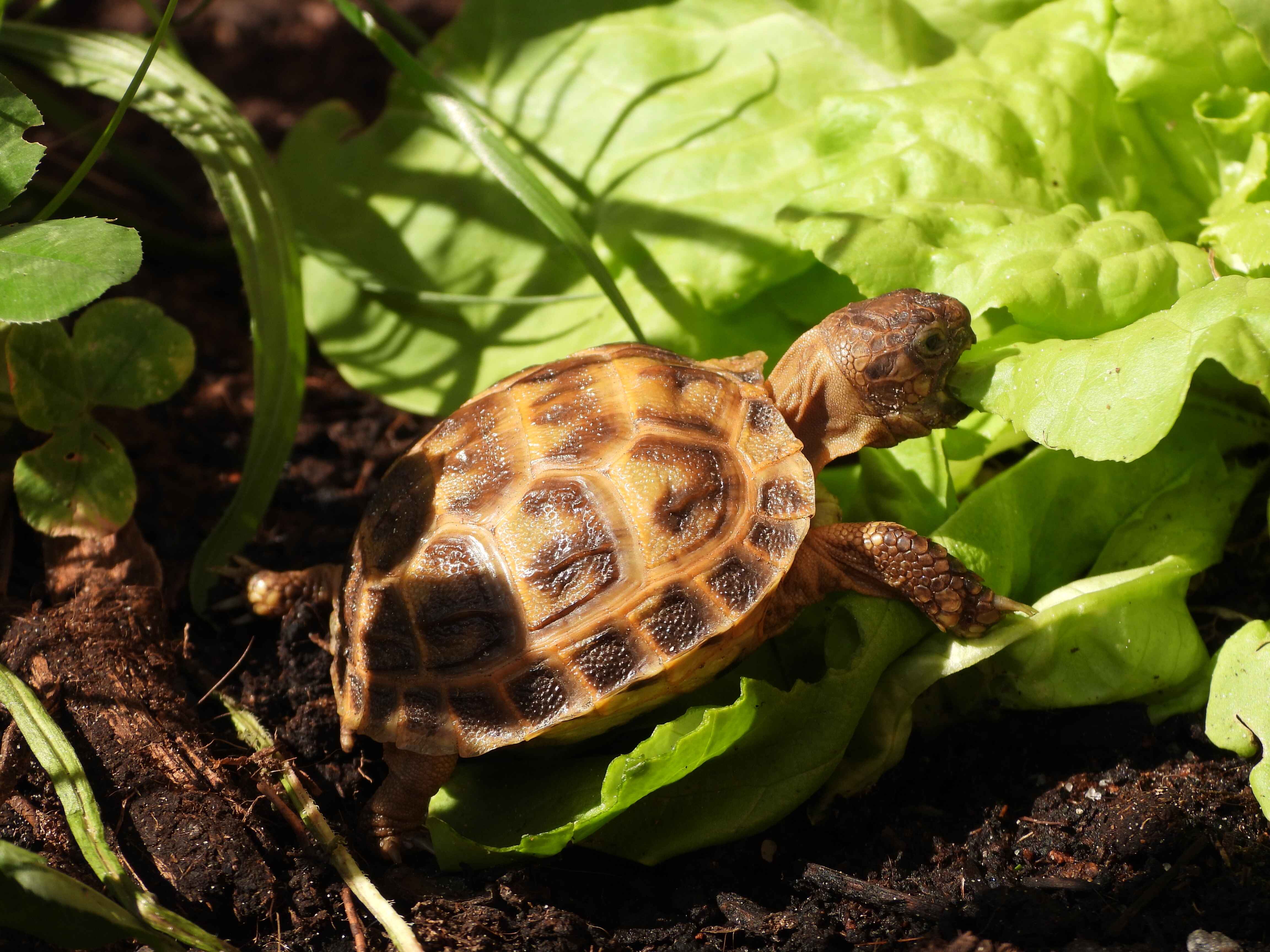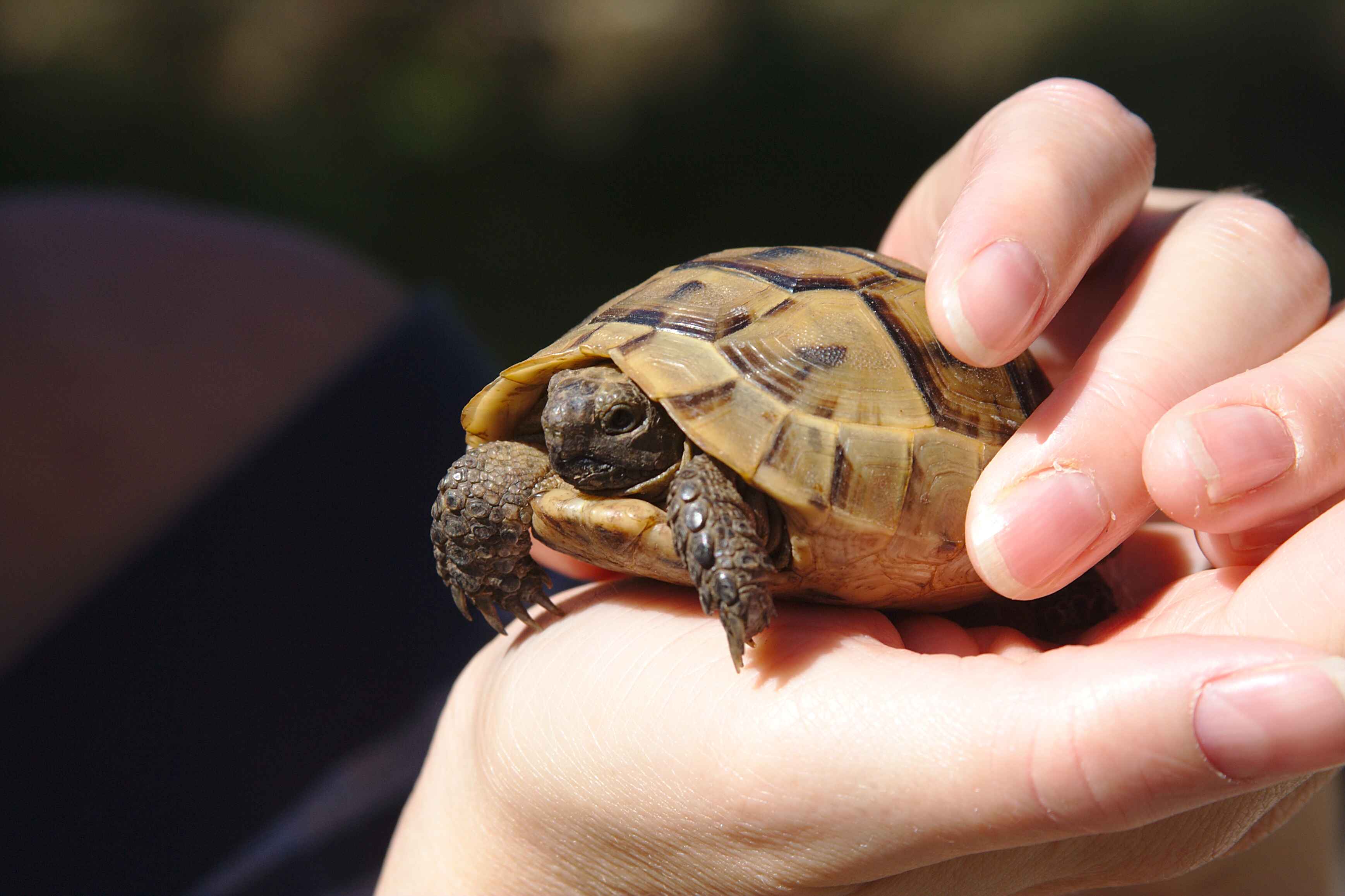Small Tortoises

Friends For Life
Tortoises are fascinating and gentle reptiles known for their intelligence. When choosing a tortoise as a pet, the biggest factor to remember is that their lifespan can average anywhere between 50 to 100 years! Ensure you're prepared to provide a forever home through life's changes and you’ll have a lifelong companion.
Russian, Greek, Marginated, and Hermann's tortoises are four closely related species of tortoises that are part of the Testudo genus. This care sheet will focus on these species as they are among the most commonly owned pet turtles and share plenty in common. They will stay relatively small compared to other species, making them suitable for any home size.
Native Habitat
The Testudo genus of tortoises originate from northern Africa, western Asia, and parts of Europe. They are used to dry, arid environments and can be found in various places like rocky hillsides, Mediterranean scrub, fields and meadows, and dry forests. Testudo tortoises are daytime animals. You’ll often see them out in the daylight, munching on grasses and other plants.

Recommended Housing And Accessories
Testudo tortoises require escape-proof housing. If housed indoors, a 36" Zilla QuickBuild Terrarium makes a great, convenient home. Substrates that enable burrowing such as a Zilla Lizard Litter, Zilla Bark Blend, and Zilla Jungle Mix are good choices to help them feel at home.
Outdoor pens can be a great option in temperate climates. They provide ample access to the natural sunlight these tortoises love. Tortoises love digging, so the pen’s outer perimeter should be at least 9-12” deep underground, with a height of at least 12”. Be sure that the enclosure is sealed to keep out predators. The enclosure should aim to be at least be 8 x 4 feet in total size, or 32 square feet.
Spot clean the enclosure for urates, feces, or uneaten food at least twice per week, and every 2 months, remove all substrate and clean and disinfect the tank and décor with products like Zilla Terrarium Cleaner.

Temperature and Lighting
Tortoises require a thermal gradient – a warm side and a cool side. Ideal temperatures range from 75-85°F on the cool side and 80-85°F on the warm side. Provide a basking area on the warm side around 95-100°F.
All tortoises require UVB lighting. A Zilla Heat & UVB Basking Fixture with a Zilla 50W Mini Halogen Bulb and a Zilla Desert Series 50 UVB Bulb will provide the correct heat and UVB needed for your tortoise to thrive.

Feeding and Diet
Testudo tortoises are herbivores and will graze upon a variety of grasses, flowers, and other plant matter. They can be fed Zilla Munchies Vegetable Mix, Zilla Herbivore Medley, and other fresh veggies. When feeding, spray the veggies with Zilla Vitamin Supplement spray and Zilla Calcium Supplement Spray for additional calcium and vitamin D3, along with other essential nutrients. For hydration, soak your tortoise in lukewarm water once a week and provide a shallow water dish or pan within the enclosure.
Check the Zilla Feeding Guide for a list of appropriate food options.

![]()
Handling
Hatchling tortoises may be shy and hide in their shells at first. As you begin to handle, feed and be around them more, they will become accustomed to you. Over time they can even learn their name and will associate you with food and activities. Handle your tortoise gently and deliberately. As they grow with you, they will become more and more personable and interactive.




